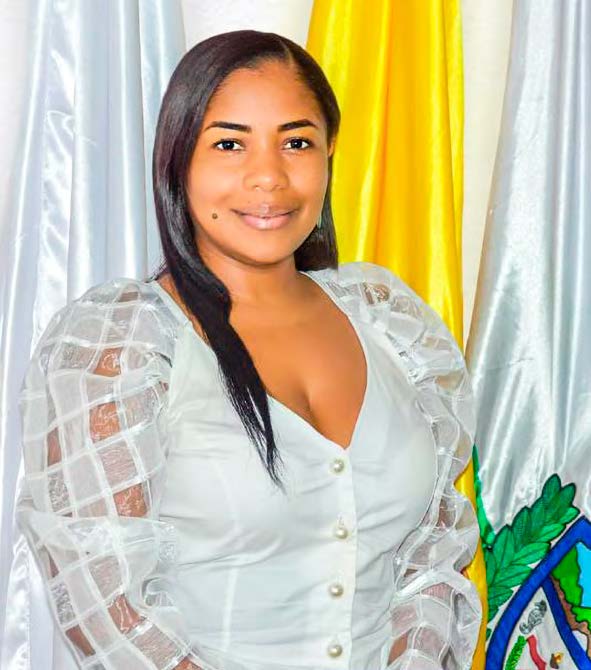The health crisis caused by the COVID-19 pandemic has shown that land formalization is vital to strengthen the role of health entities in rural Colombia. In Tumaco, 85% of the parcels are informally owned, illicit crops cover thousands of hectares, and the risk of antipersonnel landmines is high. Tumaco Mayor, María Emilsen Angulo, talks about the new USAID-supported land formalization campaign and how it could solve some of the problems that have hindered rural development for decades.
 Is informality of public lands an obstacle to mobilizing resources that can be invested in infrastructure for public services, such as, health centers?
Is informality of public lands an obstacle to mobilizing resources that can be invested in infrastructure for public services, such as, health centers?
Understanding the importance of legalizing public properties and having the opportunity to benefit from public works funded by the regional government has been a step-by-step process for us. In fact, I’m honest with you, I am not sure if all the health centers are formalized, I do not have that information. But I know that, in the future, it will probably become an obstacle, since formalization is an essential requirement for implementing projects, especially at this critical moment when people’s health is a priority.
Have you been able to successfully care for COVID-19 patients?
Fortunately yes, and with the support of national, regional, and local entities, the situation in Tumaco has improved considerably. Daily positive cases have remained below 10. The curve has flattened substantially. First and second-level hospitals in Tumaco’s urban area have received funds. Luckily, these hospitals were built a long time ago, so the plot in which they are located is already legalized, which is certainly not the case for rural health centers. Tumaco is a vast territory, we have 368 veredas, in all of them there are communities in need of access to health services. We have almost 100 health centers, 80 of them in rural areas.
Eight out of 10 properties in Tumaco are informally owned, why isn’t there a culture of formalizing property in Tumaco?
Historically, the dynamics of the local economy have not urged people to see having formalized property as a priority issue for their livelihoods. Neither the farmer nor the fisherman has viewed their property as a tool to build their business or increase financial assets. We, as administrative authorities, have also failed to recognize the importance of formal property ownership. We have not had a vision of all the benefits this creates for rural development and for investing in social services.
What kind of challenges does the government face in formalizing land and serving the rural population?
We face multiple obstacles. Illegal groups have buried anti-personnel landmines in rural areas in an attempt to control the territory and protect their illicit crops. To be able to carry out the parcel sweeps, you must first deal with minefields. There are zones in Tumaco where people cannot enter due to the presence of these groups. So we will need permanent support and a strategic alliance with military authorities.
A crucial element of mass formalization is a social approach to mitigate conflicts and raise people’s awareness. We have to guarantee empowerment and permanent communication with citizens; council members; and leaders of community boards, veredas, and community councils. Coordination with them is fundamental, so that they can be prepared to help resolve this type of conflict.
We have to guarantee empowerment and permanent communication with citizens; council members; and leaders of community boards, veredas, and community councils. Coordination with them is fundamental, so that they can be prepared to help resolve this type of conflict.
How does the Land for Prosperity Activity aim to support the Mayor’s Office on formalization issues?
First of all, USAID has the resources that we do not. USAID programs also have the experience of having carried out the parcel sweeps and updated the cadaster in other municipalities, like Ovejas, Sucre. They already know the way, so we will not be improvising but building upon previous experiences. As for strengthening the Municipal Land Office, we could not even think of advancing land formalization without having a robust, capable office properly equipped with tools, facilities, and trained staff.
What other benefits does the Mayor’s Office in Tumaco gain from its relationship with USAID?
USAID has the advantage of having a close relationship with government entities, such as the National Land Agency and the Ministry of Defense. They have the experience and capacity to coordinate with all these entities to help us face a variety of situations, obstacles, and challenges in the field. USAID’s methodology is based on planning. We agree that without a Land Use Management Plan it is much harder to move forward but, thanks to USAID, Tumaco has already updated its plan.
Are the people of Tumaco willing to invest their time in this process?
I believe they are. But when we are ready to enter a vereda or a territory, we will need significant communication efforts because people no longer live there. We often see these challenges of visiting a vereda to find no one, just empty houses. People in Tumaco have a house or a farm in the rural area, but they do not live there, since they have left in search of better conditions for their children, or have simply been displaced by violence.
Banner Photo: SITUR Nariño
Download the Interview

